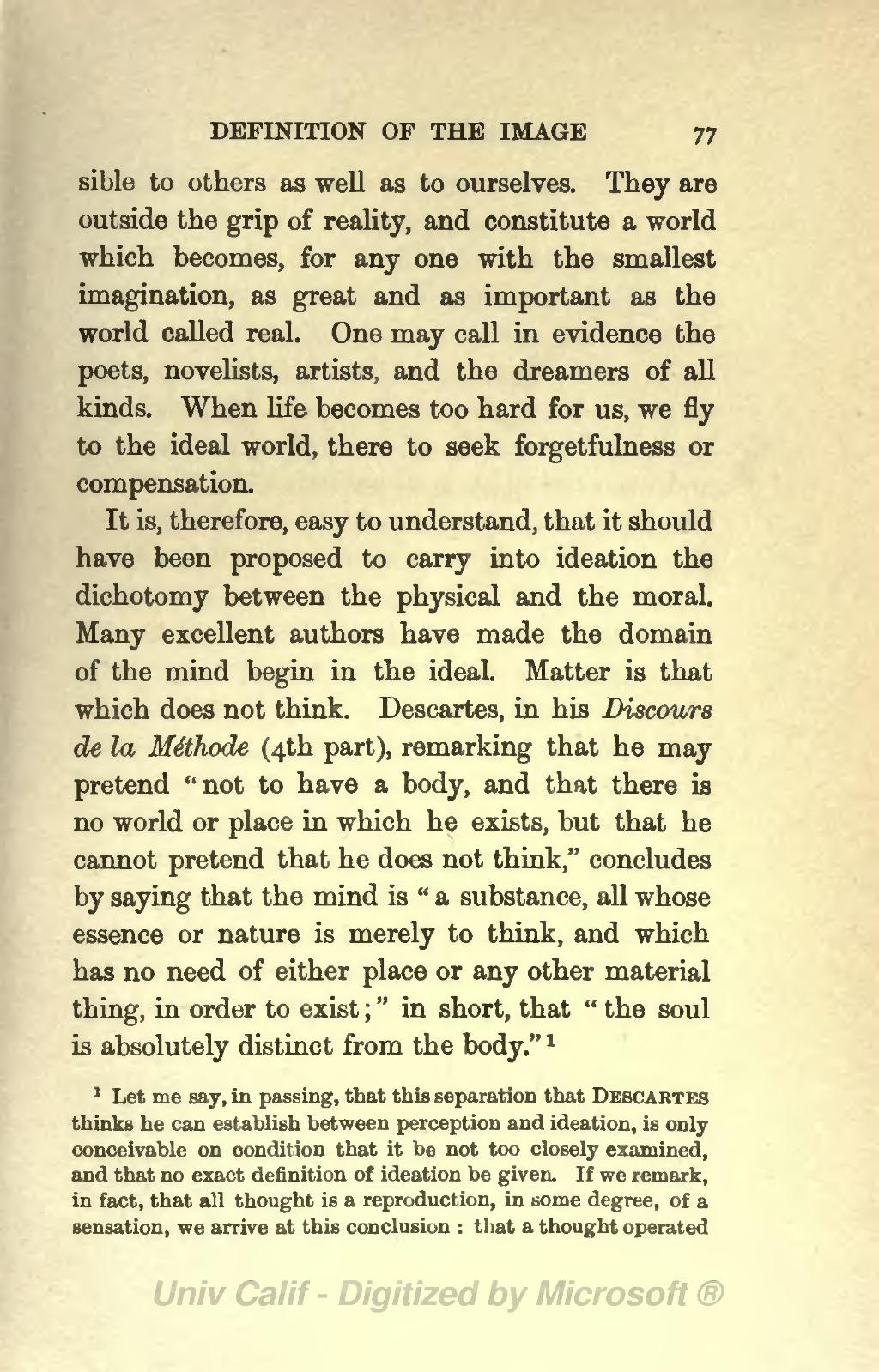sible to others as well as to ourselves. They are outside the grip of reality, and constitute a world which becomes, for any one with the smallest imagination, as great and as important as the world called real. One may call in evidence the poets, novelists, artists, and the dreamers of all kinds. When life becomes too hard for us, we fly to the ideal world, there to seek forgetfulness or compensation.
It is, therefore, easy to understand, that it should have been proposed to carry into ideation the dichotomy between the physical and the moral. Many excellent authors have made the domain of the mind begin in the ideal. Matter is that which does not think. Descartes, in his Discours de la Méthode (4th part), remarking that he may pretend “not to have a body, and that there is no world or place in which he exists, but that he cannot pretend that he does not think,” concludes by saying that the mind is “a substance, all whose essence or nature is merely to think, and which has no need of either place or any other material thing, in order to exist;” in short, that “the soul is absolutely distinct from the body.”[1]
- ↑ Let me say, in passing, that this separation that Descartes thinks he can establish between perception and ideation, is only conceivable on condition that it be not too closely examined, and that no exact definition of ideation be given. If we remark, in fact, that all thought is a reproduction, in some degree, of a sensation, we arrive at this conclusion: that a thought operated by a soul distinct from the body would be a thought completely void and without object, it would be the thought of nothingness. It is not, therefore, conceivable. Consequently the criterion, already so dangerous, which Descartes constantly employs—to wit: that what we clearly conceive is true—cannot apply to thought, if we take the trouble to analyse it and to replace a purely verbal conception by intuition.
